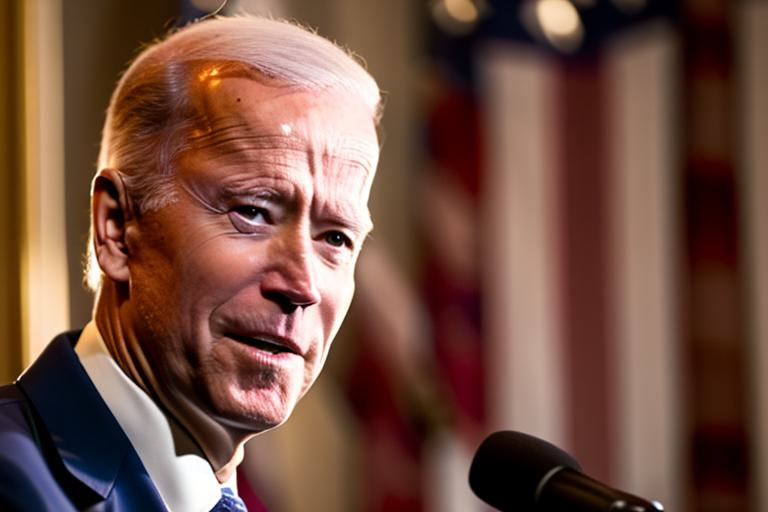

The President of the United States, Joe Biden, has announced a plan to nationally tax speech writing skills in an attempt to reduce the national deficit. The proposed tax would be levied on all Americans who earn income from writing speeches, regardless of whether or not they are professional writers.
Biden stated that this tax would not only help to reduce the deficit, but it would also encourage more people to become involved in public speaking. He believes that this would help to improve the quality of political discourse in the United States, as more people would be motivated to engage in public speaking and share their ideas and perspectives.
However, the proposal has been met with criticism from some quarters. Critics argue that it would be difficult to implement and that it would unfairly target those who make their living from writing speeches. They also argue that the tax would ultimately be passed on to the consumer in the form of higher prices for products and services, as businesses would pass on the added cost to their customers.
On the other hand, supporters of the plan argue that it is a necessary step in order to reduce the national debt and bring the country's finances back on track. They also argue that the tax would only be applied to those who can afford to pay it and that it would not impact the average American. They believe that it is the responsibility of all Americans to contribute to the national effort to reduce the deficit and ensure the country's long-term financial stability.
But perhaps the biggest irony of this proposal is that it comes from Joe Biden, a man known for his love of giving speeches and his skills as a speechwriter. Some have even gone so far as to suggest that this tax is a ploy by Biden to ensure that he has a steady stream of income from speechwriting for the foreseeable future.
The fate of the proposal is uncertain at this time, as it will likely be met with stiff opposition from both Republicans and Democrats in Congress. It remains to be seen whether the proposal will be able to gain enough support to be enacted into law.
The idea of taxing speech writing skills is not only unfair, but it is also completely misguided. It is not clear how the government could even go about implementing such a tax, as it would be almost impossible to accurately measure the complexity and skill level of someone's speech writing.
Furthermore, the proposal ignores the fact that many people who earn income from writing speeches do so as a side hustle or part-time job. These individuals may not make a lot of money from writing speeches, and taxing them would likely do more harm than good.
Additionally, this tax would disproportionately affect marginalized communities and individuals who may not have the same level of access to education and resources as those who come from more privileged backgrounds. This would further widen the gap between the haves and the have-nots, and do nothing to address the root causes of the national deficit.
Finally, it is worth considering the fact that the national deficit is the result of a complex set of issues and cannot be solved by a single policy or tax. To truly address the deficit, the government would need to undertake a comprehensive approach that includes reducing government spending, increasing tax revenues, and promoting economic growth.
In short, taxing speech writing skills is a short-sighted and unfair solution to the national deficit. It is not a viable or effective way to address the complex issues facing our country.